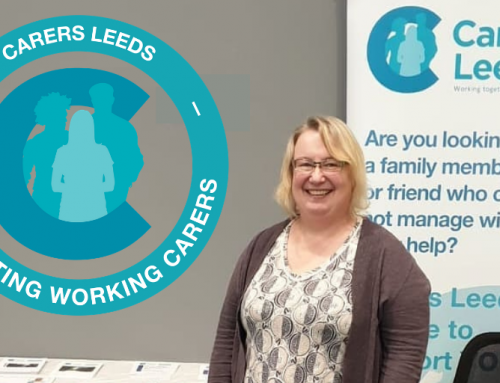 Only a Lasting Power of Attorney (LPA) gives you the peace of mind and legal ability to give those you trust power to make decisions when you can’t.
Only a Lasting Power of Attorney (LPA) gives you the peace of mind and legal ability to give those you trust power to make decisions when you can’t.
Emma Quarshie, who is in her 60s and retired, thought she could automatically manage her parent’s affairs. Emma’s parents both died in their 60s and her father didn’t leave a will. This caused a lot of problems for Emma’s family with solicitors and the legal system, and as a result she didn’t want her sons to bear the same burden if anything happened to her.
“You never know what’s going to happen tomorrow, so it’s important to seriously think about it,” Emma said.
How does an LPA work?
An LPA makes it easier for the people you trust to support you and, if needed, act for you when you may need it most. It could be temporary help to cover a short hospital stay, or longer-term support to manage decisions around your health and care or accessing bank accounts.
An LPA lets people you trust quickly, easily and legally step in to help you. An LPA not only gives you a voice – it protects your choices.
Emma chose two sons to be the ones to act on her behalf if she needs help in the future. “You can decide who can have power of attorney, what you want them to do for you and it’s all about empowering the people you trust to make the right decisions.”
 An LPA costs £82 but gives peace of mind.
An LPA costs £82 but gives peace of mind.
You might think that setting up an LPA is expensive, time consuming and requires a solicitor. You can choose to use a solicitor if you wish, but it’s not a requirement, and it’s easy to apply on GOV.UK with step-by-step support. Depending on your circumstances you might be able to get it for a reduced price or for free.
If you’re having difficulty or don’t have access to a computer, you can contact the Office of the Public Guardian for help and they can arrange to send the forms in the post for you to fill out by hand.
Emma chose to use paper forms and found that “the process was smoother and easier than I thought. It was cheaper than I thought too.”
There are two different types of LPA.
1. Finances – covering running your bank account, paying your bills and collecting your pension.
2. Health and care – covering your medical treatment and living conditions.
“When you’re sick, you can’t make these decisions and by then it’s too late. Then you’re backwards and forwards with lawyers,”
says Emma. “There’s a taboo (in minority ethnic communities) that talking about (old age or illness) tempts fate but you never know what could happen down the line.”
For more information visit: powerofattorney.campaign.gov.uk or telephone the Office of the Public Guardian on 0300 456 0300.








Leave A Comment